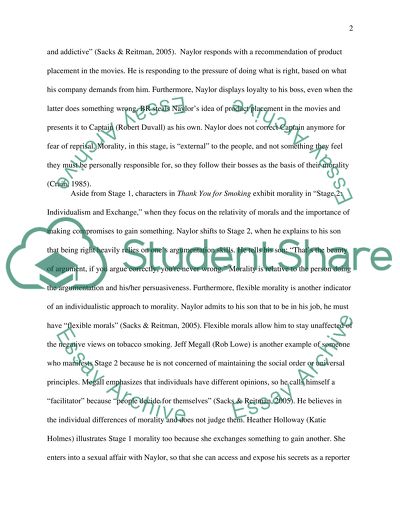Cite this document
(“Kohlberg's Stages of Moral Development in Thank You for Smoking (2005) Essay”, n.d.)
Retrieved from https://studentshare.org/law/1471481-thank-you-for-smoking
Retrieved from https://studentshare.org/law/1471481-thank-you-for-smoking
(Kohlberg'S Stages of Moral Development in Thank You for Smoking (2005) Essay)
https://studentshare.org/law/1471481-thank-you-for-smoking.
https://studentshare.org/law/1471481-thank-you-for-smoking.
“Kohlberg'S Stages of Moral Development in Thank You for Smoking (2005) Essay”, n.d. https://studentshare.org/law/1471481-thank-you-for-smoking.


